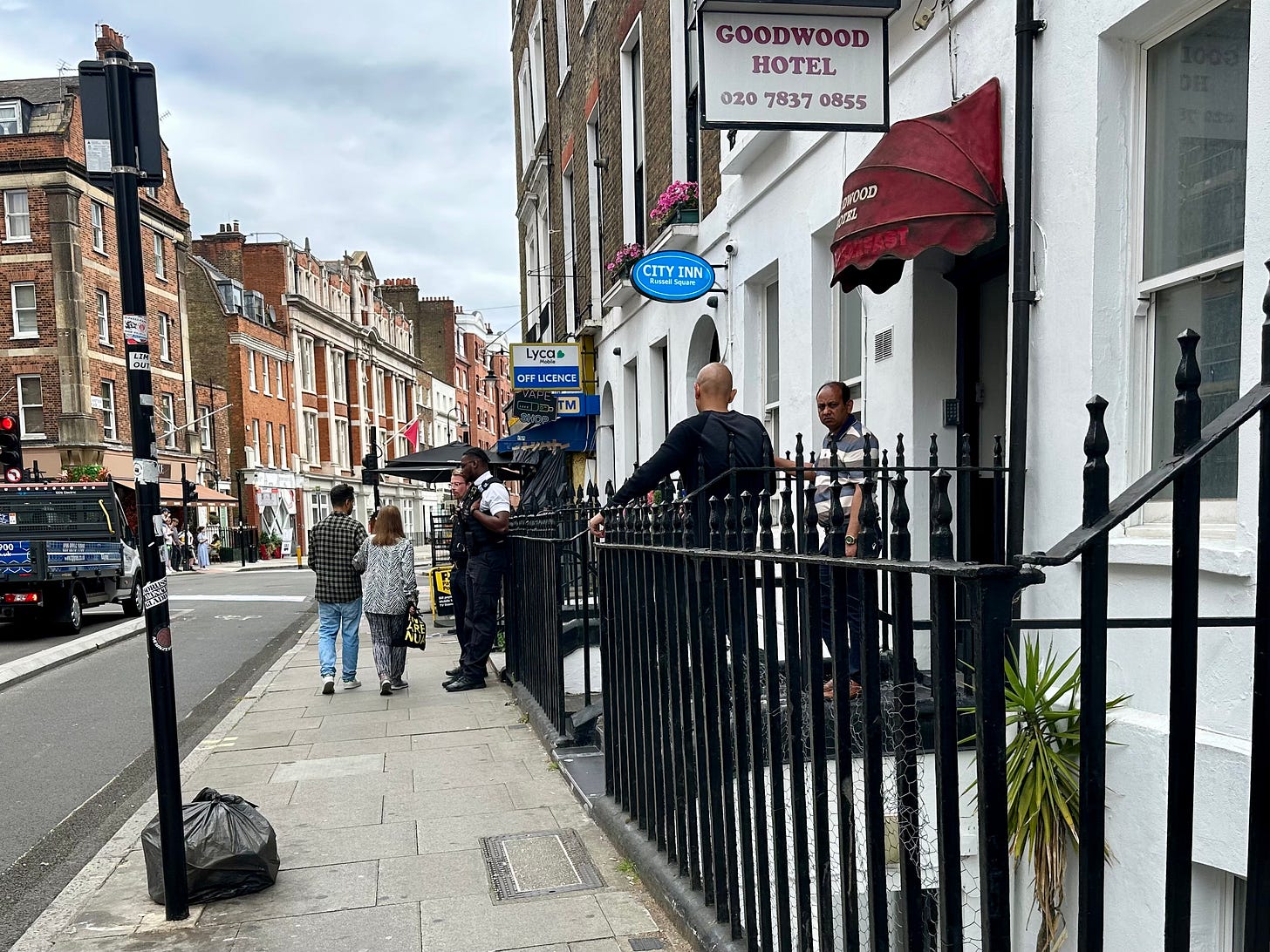While We Can
A quietly devastating moment overheard on holiday reflects the fragile, circular nature of time, love, and intention.
“Have the undertakers arrived?"
— Son, supporting Mother, to two Bobbies outside an Inn in Russell Square (08-07-2025)
An unexpected moving moment in our travels overheard while buying London trinkets and wondering why two bobbies without traditional headwear were standing outside an Inn next door.
Summary
This brief, intimate question, overheard in a central London street, captures the intersection of grief and ordinary life, and the quiet circularity of doing what we can, while we can.
Explanation
It was a warm late morning in London, the kind of summer day when life spills easily into the streets—tourists browsing stalls, locals moving with purpose, and travellers pausing between destinations. Outside an Inn in Russell Square, two uniformed police officers stood waiting on the pavement. Curiously, they wore no traditional bobby helmets—possibly a concession to the summer heat, or perhaps a quiet choice to avoid drawing attention to a situation that, while serious, posed no threat to the public.
It was there, in this otherwise unremarkable scene, that a brief but deeply affecting exchange took place. A son, gently supporting his mother, approached the officers and asked softly: “Have the undertakers arrived?” The question was practical, almost procedural—but the emotional weight behind it was unmistakable. Something had happened—something final.
That single question opened a window into another family's private world, one that was being quietly upended just metres away from the daily rhythm of London life. Like the observers who overheard it, the family were likely on holiday—doing what many do, making time for each other, travelling, creating shared experiences. And then, in the middle of it, everything changed.
There’s a painful symmetry here: we make plans, we travel, we savour time with those we love because life is finite. We do what we can, while we can. Yet sometimes, even in the midst of doing, the very reason we do—our shared mortality—asserts itself. That’s the circularity of it. We act out of love and urgency, only to find that love and urgency can be halted without warning.
The presence of the two Bobbies—calm, unassuming, and undramatic—reinforced the quiet gravity of the moment. Their lack of the iconic headgear, often a marker of ceremonial or formal presence, seemed deliberate or at least fitting. It gave the moment a gentler visual register, one that did not alert or alarm passers-by. This was not a matter of public danger; it was a matter of private sorrow playing out in a public space.
That contrast—between the public and the private, the visible and the invisible—gives the moment its haunting resonance. Tourists, buying trinkets or checking maps, stood just steps away from a scene of quiet devastation. Life, in all its overlapping forms, was unfolding side by side.
This fleeting overheard exchange serves as a poignant reminder: we do what we can, while we can, not in denial of life's unpredictability but because of it. That it can all change so quickly is not a reason to stop doing—it’s the very reason we must.
About the Speaker
The son, though unnamed, is the emotional centre of this moment—a steadying figure for his mother and a quiet negotiator of grief. His question, though simple, revealed an entire story in a single breath. In that moment, he spoke not only for himself, but for all those who have had to face life’s sudden shifts with dignity and care.




